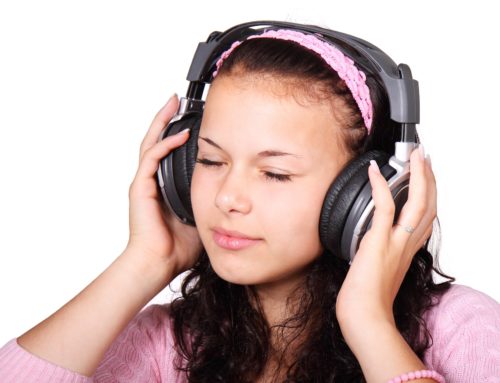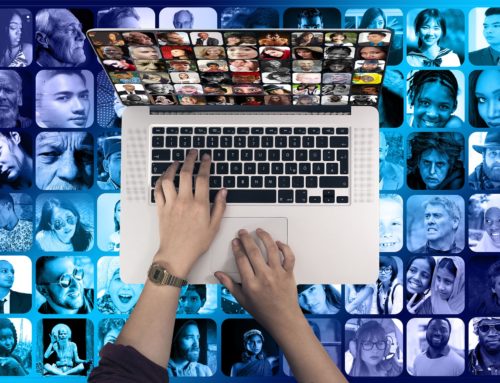A few nights ago, I was part of the “Get Geeky” panel that Social Media Club-DC had put together.
Along with Alex Howard, Frank Gruber and Shana Glickfield, we talked about “smarter social networking.”
Much was discussed, but I’ve been thinking more about one of the questions that was asked:
If you’re a good connector and/or networker offline, how do you take that online?
That wasn’t the exact question, but that’s the essence of it.
To me, if you’re good at connecting and networking offline – what one would call a “people person,” you’ll be a natural at doing it online.
Yea, sometimes the tools are funky, you have to get used to the platforms, etc. – but you already know what it takes to connect with people.
So it’s simply a matter of getting used to the technology that allows you to do so.
The real challenge
in my opinion, is doing the opposite.
You could be great at connecting online.
You’ve got the patter, the spiel, the shtick down.
You’ve got the smiley faces, the acronym soup, the zingy one-liners down.
Is it going to be the same when you meet someone in person?
Whether we like it or not, people form an impression of us by virtue of our online activity.
They do the same offline, of course, but now many more people are drawing pictures in their heads as we connect with them on Twitter, Facebook, et al… without necessarily having met us.
I asked this question on Twitter: Are people you’ve met online the same as you imagined when you meet offline? For those who are, what’s their secret?
Here’s some of what folks had to say:
Kalyn Risker said [sic]: “when they use a ‘real’ pic and are they are authentic in their post. After I meet them I can hear their voice in subsequent post.”
Kyle Henderick: “The people that aren’t 100% business and joke more on Twitter tend to be more real/the same offline in my experience.”
JoLynne Jensen Lyon: “In general I find people less gregarious in person than they were online. I probably am, too.”
Tim Lloyd (who has previously guest-posted on WUL): “often find those who are quiet on Twitter have most to offer offline, and sometimes other way round i.e loudest have less to say.”
And Julie Turner: “Authenticity.”
To me, that is at the core of what smarter social networking is about.
Authenticity.
It’s been said so often that it’s become a cliché.
But if you are yourself online, you will be more recognizable offline.
To me, that’s what smarter social networking is.
It doesn’t matter if the common wisdom is that you shouldn’t tweet about what you had for lunch, or to what extent you should separate your personal and professional personas, and so on.
If you’re you online, you’ll be you offline.
And that’s where the real magic of networking kicks in.
But that’s just what I think.
What do you think?









[…] give me a spreadsheet and I’m in heaven!)… and I love how technology is allowing us to practice in more dynamic and interactive ways than ever […]
[…] been thinking about this since Shonali’s thought-provoking post a few weeks back about how to social network smartly by being yourself […]
[…] If I’m going to be as authentic online as off, I can’t get any more authentic than […]
[…] world, regardless of what’s actually going on deep down. If we’re going to talk about authenticity in social networking, shouldn’t we at least try to accurately portray what’s going on offline, […]
A very interesting concept. It does seem to make sense to take advantage of the new trends in social media and custom tailor them to suit your own business expansion needs. It appears to be a very powerful tool if approached in the proper manner. I could see where social media could serve as a great confidence builder and contact builder. Some other insightful free information on networking can be found at:
http://relationshipcapital.co/op/?utm_src=bl
[…] world, regardless of what’s actually going on deep down. If we’re going to talk about authenticity in social networking, shouldn’t we at least try to accurately portray what’s going on offline, […]
[…] If I’m going to be as authentic online as off, I can’t get any more authentic than […]
[…] Conduct your online self with authenticity, integrity and consistency. Authenticity because if you’re not who you are online, […]
I have a friend who is marketing director at calfit . She didn’t have experience with social media but she is a great people person. She naturally engages with her community online and does an amazing job of it. She’s always had the skills and once she learned the tools it was a piece of cake!
Good question as I wonder that myself. Most of the people I engage with on twitter I do not know personally. I did have a random phone call from @mimimeridith that was a lot of fun. I think I’m authentic and what you read is what you get. I don’t take myself too seriously and I am just as apt to write what I’m thinking as to say it. I’m very personable in person and try to be online as well; I just don’t think I have a big enough presence for people to form an opinion. I do try to engage w/ several of my new tweeps on their blogs when I can. I think those people probably have some opinion. @ginidietrich has been a sport as I have dropped some silly stuff on her. I would think it would be easier for people to come out of their shell online and reveal more of what they want their personality to be, or their inner self. So that would leave room for a little disconnect once you meet them. One of my quest as I develop my twitter network is to meet and/or talk to as many as I can. It will humanize it and I can form my opinions from there. That’s part of the journey and it has been enjoyable.
PS – I actually had paragraphs but when it posted it made it look like one long run on sentence……………….:)
@bdorman264 Uh oh, we’ll have to tell jeremy hicks about that, to see if they can fix that in livefyre !
@bdorman264 Re: trying to humanize the online experience – danperezfilms said something similar as a comment on a post a while back. I think that’s really the key, and while I don’t get to meet everyone IRL that I do on Twitter, it definitely makes a difference when I do – I would like to think for them as well.
As to @ginidietrich , she is such a good sport!
@Shonali @bdorman264 jeremy hicks livefyre My ears were burning…;)
Hi @bdorman264 ! By any chance did you copy and past that comment? If not, we’ll work to get to the bottom of it!
I couldn’t agree more with this: “I would think it would be easier for people to come out of their shell online and reveal more of what they want their personality to be, or their inner self.”
I think often times people get caught up in what they think they SHOULD be, opposed to who they WANT to be, which is often times very easy to decipher and thus shows the (however innocent) lack of authenticity. At some point, you’ve got to say, “I’m going to be the best person that I can be for myself, not the best person that people want me to be for them.” That kind of authenticity shows honesty and it shows a dedication and conviction to being real, and that goes a long way with people.
Love the post Shonali, and thanks for including me in it :). I like to think the same way you do, be yourself online so you can just be yourself offline. I feel if you overcompensate your knowledge or try to be something you’re not online, then when the face to face interaction happens (which is where the deeper connections are made) you will have to be this personayou may have created. When I first started online I tried to keep my sports interest out because I thought I would look more professional. I soon learned that it just wasn’t me, and my love of Chicago sports is a huge part of who I am. When I actually embraced it, I began meeting more and more people like me (which is what online networking is all about anyways right?). I think this change has helped me connect with more like minds and has made my online experience more fun.
It’s easier said than done, but words say it best – ‘But if you are y’ourself online, you will be more recognizable offline’
@KyleHenderick But of course; you were kind enough to reply when I asked the question (re: including you). That’s pretty much my philosophy as well, ‘cos if you don’t like who I am online, you’re pretty much guaranteed to dislike me offline.
@ericaholt has an interesting point about filters, which is extremely valid, I think, as does @RandyClarktko re: acting differently in different situations. Because that’s really true, and that’s part of being adept in social situations, isn’t it? Diplomats take it to an art form. But I still think there is a core authenticity that stays, no matter how many filters there might be, or how one adapts to, and behaves in, different situations.
@Shonali @KyleHenderick @ericaholt @RandyClarktko Upset that I’m just now seeing this post guys, but here’s my 2 cents: dan perez said it exactly right. The point is to act like a living, breathing, human being both online and off. People can smell fake from a mile away. I definitely filter myself more online (read: way less profanity), but the essence of who I am and what I think isn’t filtered at all.
People develop opinions about who you are as a person based on your online activity, the same as they develop opinions about you based on what you do in your life. If you want a sterling online reputation, act as a sterling human being.
Excellent post, great thoughts. Many of us act differently in different situations. For example, what might seem natural, such as joining a conversation on tweeter, may be a challenge F2F at a networking event. Or an outgoing individual may not have confidence in their writing skills to join in an on line conversation. Is it unauthentic to modify behavior to fit in? I don’t believe it is. I think the key word is skill. Learn the skill needed to communicate more effectively who you genuinely are.
@RandyClarktko “Learn the skill needed to communicate more effectively who you genuinely are.”
That’s a GREAT point!
I’m a total (sometimes painful) introvert – online is so much easier for me to express what i’m thinking. (and i can edit!) So big events, networking are difficult for me and you are unlikely to even hear my voice (or possibly see me, even if I’m there) But in-person, one on one – I think I am pretty much the same IRL and in the Twitter-verse.
(Shonali – your WGB post today is awesome – what I wouldn’t give to look into your file of shame!)
@accompanyc Believe me, you would probably die laughing if you saw the Wall of Shame. Though I would not want you to die, laughing or otherwise, so I will never show it to you. :p
What you say about being introverted is interesting. Do you think many people who are active in SM might be like that?
Love it! I honestly think it so much more than even “being yourself.” I think even if you try or act naturally in a way you believe you would offline, that the mechanics of social media make that very difficult. You can be whoever you want to be online. A certain filter is missing that you have in person. You have the opportunity to create a different identity. Even when I interact in a way online that I feel is true to my nature, it’s often not the way I might behave in person.
@ericaholt You do indeed have the opportunity to create a different identity online. But don’t you think that if that identity is drastically different to the way you interact offline, it’s going to catch up with you? Take you & me, for example. IMHO, the way you interact online is pretty much the way you interact offline, except that there’s more dimension offline… as there should be. I think I’m the same. Most people I’ve enjoyed getting to know offline after meeting them online are the same.
Thoughts?
@Shonali You must not really know me then ;) ;)…Yes, I would surely agree that your online identity reflects your real identity with more dimension as you say, and I do think that about myself as well. However, I still think there’s a certain filter we’re missing and unless you consciously think about it all the time (like, would I make this comment in real life), we can all fall in to a tendency to act the way we might *want* to but would either hold back or say differently in person. I like thinking about this stuff, though — fun convo.
@ericaholt That’s a really good point about a filter. Interesting, though; for me it’s more what would I NOT say or do online (e.g. cussing) that I would (might :)) do IRL. Because I think there is limited tolerance online for certain things, which is extended offline once you actually get to know someone.